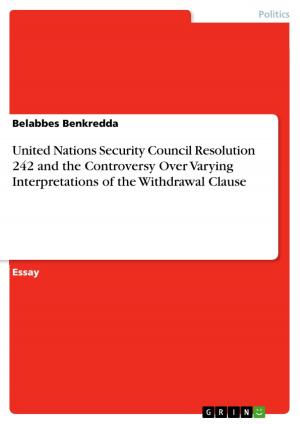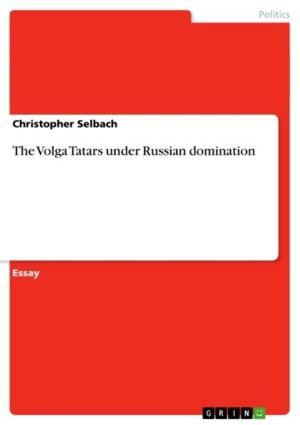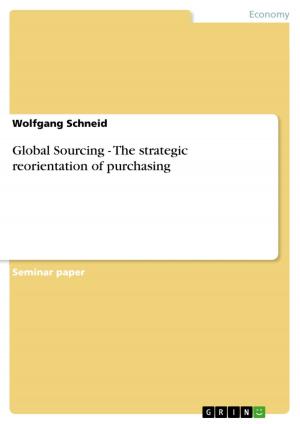Co-operative System of European Security
Nonfiction, Social & Cultural Studies, Political Science, International, International Relations| Author: | Heiko Bubholz | ISBN: | 9783638138598 |
| Publisher: | GRIN Publishing | Publication: | August 19, 2002 |
| Imprint: | GRIN Publishing | Language: | English |
| Author: | Heiko Bubholz |
| ISBN: | 9783638138598 |
| Publisher: | GRIN Publishing |
| Publication: | August 19, 2002 |
| Imprint: | GRIN Publishing |
| Language: | English |
Seminar paper from the year 2002 in the subject Politics - International Politics - Topic: International Organisations, grade: 1,0 (A), Jagiellonian University in Krakow (Centre for European Studies), course: European Security at the turn to the 21st century, 54 entries in the bibliography, language: English, abstract: The process of European integration makes significant and visibly progress. Only few months ago a considerable number of European citizen decided enthusiastically to adapt the new ? currency, while the procedure and negotiation towards the eastward enlargement of the Community produces predominantly positive news. At latest with the Council Meeting of Laeken it had been concluded that a major step of the enlargement - and thus an unprecedented step in Europe's history - might be accomplished in 2004 [1]. Nonetheless, the events of two recent wars on the Balkans (Bosnia and Kosovo) and the consciousness of Europe's inability to cope with these local conflicts prevails still in the collective memory of most of European political and military leaders. After the end of the Cold War the today's security scenario is lacking the - to certain extent healthy - superpower polarity of the good old days that often served to impose tense order in a confrontational world. Intra-failed-state and regional conflicts are now joining with local instability and insurgencies, which may define the most likely forms of upcoming armed conflicts in Europe or its near periphery[2]. Thus, aim of this paper shall be to elaborate a feasible and predictable scenario of European future security policy and its accompanying means. To the purpose of this discussion it deems necessary first to identify where Europe is, or where it ends, and what should be considered indispensable for a European security model. Correspondingly, there are already a number of international organizations in existence, which solely may already provide sufficient security to what is considered of Europe's interest. Part of this paper shall be the evaluation if these existing institutions. This should allow for some recommendations, which ought to be the last part of this discussion. [...]
Seminar paper from the year 2002 in the subject Politics - International Politics - Topic: International Organisations, grade: 1,0 (A), Jagiellonian University in Krakow (Centre for European Studies), course: European Security at the turn to the 21st century, 54 entries in the bibliography, language: English, abstract: The process of European integration makes significant and visibly progress. Only few months ago a considerable number of European citizen decided enthusiastically to adapt the new ? currency, while the procedure and negotiation towards the eastward enlargement of the Community produces predominantly positive news. At latest with the Council Meeting of Laeken it had been concluded that a major step of the enlargement - and thus an unprecedented step in Europe's history - might be accomplished in 2004 [1]. Nonetheless, the events of two recent wars on the Balkans (Bosnia and Kosovo) and the consciousness of Europe's inability to cope with these local conflicts prevails still in the collective memory of most of European political and military leaders. After the end of the Cold War the today's security scenario is lacking the - to certain extent healthy - superpower polarity of the good old days that often served to impose tense order in a confrontational world. Intra-failed-state and regional conflicts are now joining with local instability and insurgencies, which may define the most likely forms of upcoming armed conflicts in Europe or its near periphery[2]. Thus, aim of this paper shall be to elaborate a feasible and predictable scenario of European future security policy and its accompanying means. To the purpose of this discussion it deems necessary first to identify where Europe is, or where it ends, and what should be considered indispensable for a European security model. Correspondingly, there are already a number of international organizations in existence, which solely may already provide sufficient security to what is considered of Europe's interest. Part of this paper shall be the evaluation if these existing institutions. This should allow for some recommendations, which ought to be the last part of this discussion. [...]















